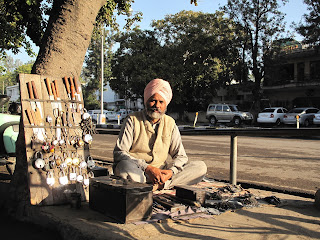Tobacco-nomics Of India!!!
After Economics,
Abenomics and recently Modinomics it’s time for you to know about the
Tobacconomics; it’s nothing but just the Economics of tobacco in India.
India has
been known throughout the world for being an exception in many areas and
fields. You must also add the Tobacco industry to it. The economics of tobacco
in India is so different from the world that many economists have done a
research and wrote many articles on it.
 The topic
got revived again when, the recently elected government thought of increasing
the tax on tobacco products due to its increasing economic burden in form of health
treatment of various diseases caused by its consumption. Such medical
expenditure also leads to poverty.
The topic
got revived again when, the recently elected government thought of increasing
the tax on tobacco products due to its increasing economic burden in form of health
treatment of various diseases caused by its consumption. Such medical
expenditure also leads to poverty.
Well what is
so hot about it and attracting a lot of debate? So the biggest question is that
“Will increasing taxes, on tobacco products, will lead to lower consumption in India? “
Any person
would tell that increasing taxes would lead to higher prices and will lead to
lower consumption, then what is so strange or exception in it. Well before that
I would ask few questions: Have you ever thought that why cigarettes are
available in different sizes? Why beedis are still made manually when they can
be produced easily from the machines?
Well these
are Loopholes in our tax structure of Tobacco products which are being exploited
by the producers. The loopholes are so large allowing even an elephant to pass
through it.
Tax
structure of tobacco in India is quite different from the rest of the world.
Some of it’s important features are:
·
Tax
in India is based on the size of the cigarettes i.e. longer the cigarettes
higher the tax it will attract. This differentiated taxation is the major
problem.
·
Tax
in India is around 45% of the retail price, while the WHO sets a limit up to
70%. Hence there is much room available for higher taxation.
·
Producers
producing beedis less than 10 million sticks per year are not subject to
taxation. Hence large producers instead of producing them through machines try
to outsource them to local people.
·
Beedis
which are mostly consumed by the poor people have lower taxes than cigarettes.
Now you can
imagine of its consequences. If government increases tax then in order to evade
the taxes people will shift from large cigarettes to smaller one. Hence it will
reduce consumption minimally.
For a strong
change government will have to re-frame the tobacco tax structure in India otherwise it will not be able to achieve its goal. It’s high time for India to act
as consequences of tobacco consumption are going to be worse in future for
India, a country having largest young age population.


Comments
Post a Comment